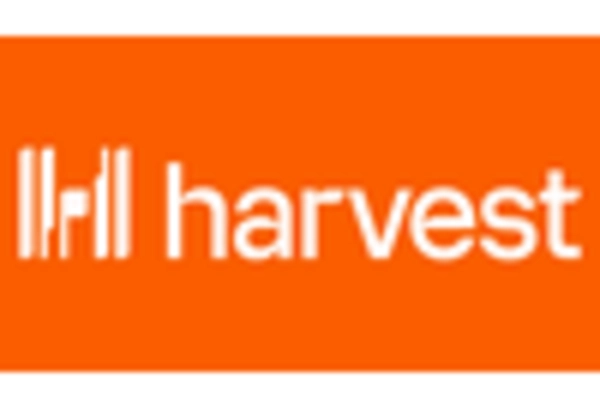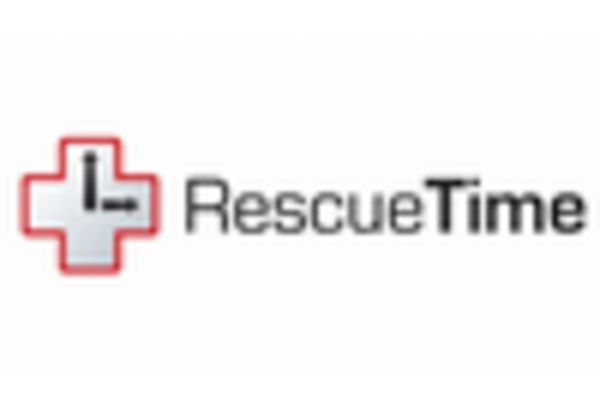Rising Demand for Remote Work Solutions
The increasing trend towards remote work in South Korea has led to a heightened demand for time tracking-software market solutions. Companies are seeking tools that facilitate productivity monitoring and project management from various locations. According to recent data, approximately 30% of South Korean employees are now working remotely, which necessitates effective time management solutions. This shift is driving businesses to invest in software that not only tracks hours worked but also integrates with other productivity tools. As organizations adapt to this new work environment, the time tracking-software market is likely to experience significant growth, as companies prioritize efficiency and accountability in their remote teams.
Focus on Compliance and Labor Regulations
In South Korea, stringent labor laws and regulations are influencing the time tracking-software market. Companies are required to maintain accurate records of employee working hours to comply with legal standards. This has created a demand for software solutions that can automate time tracking and ensure compliance with the Labor Standards Act. As of 2025, it is estimated that around 70% of businesses are investing in time tracking solutions to avoid penalties associated with non-compliance. The need for accurate reporting and transparency in labor practices is driving the adoption of advanced time tracking software, which can provide detailed analytics and reporting features.
Integration with Financial Management Systems
The time tracking-software market is increasingly being influenced by the need for integration with financial management systems. In South Korea, businesses are recognizing the importance of linking time tracking data with payroll and invoicing processes. This integration allows for more accurate billing and payroll calculations, reducing errors and administrative burdens. Recent studies indicate that companies that utilize integrated systems can reduce payroll processing time by up to 25%. As organizations seek to streamline operations and enhance financial accuracy, the demand for time tracking software that offers seamless integration with financial tools is likely to grow.
Technological Advancements in Software Features
Technological advancements are driving innovation within the time tracking-software market. In South Korea, the introduction of artificial intelligence and machine learning capabilities is enhancing the functionality of time tracking tools. These technologies enable more accurate time estimation and automated reporting, which can save businesses valuable time and resources. As of 2025, it is projected that the adoption of AI-driven time tracking solutions will increase by 40%. Companies are looking for software that not only tracks time but also provides predictive analytics to improve project management. This trend indicates a shift towards more sophisticated and intelligent time tracking solutions.
Emphasis on Employee Well-being and Productivity
The focus on employee well-being and productivity is shaping the time tracking-software market in South Korea. Organizations are increasingly aware of the impact of work-life balance on employee performance. Time tracking software that provides insights into work patterns and encourages breaks is becoming more popular. Companies are investing in solutions that not only track hours but also promote healthy work habits. This trend is supported by research indicating that employees who manage their time effectively report higher job satisfaction and productivity levels. As a result, the time tracking-software market is evolving to include features that support employee wellness initiatives.















